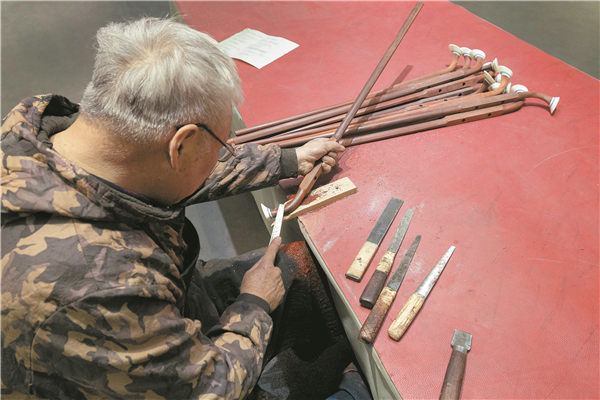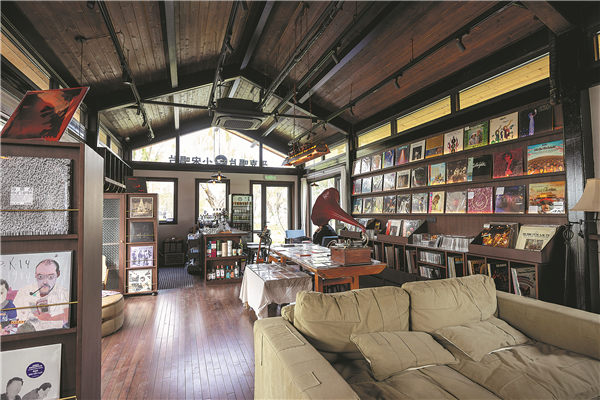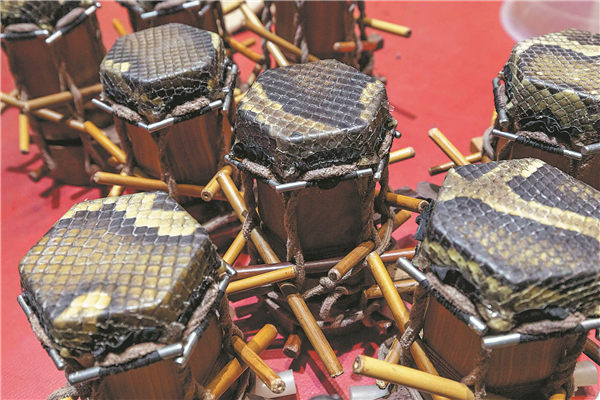(ANN/CHINA DAILY) – At Lihu Lake Scenic Spot in the city of Wuxi, China, a small island is evolving into a “lake-centre utopia,” where music and nature blend harmoniously. The island now features a record store, music bookstore, rehearsal studio, and an open-air performance space, creating a unique destination for music lovers.
Nearby, the former residence of Abing, the blind musician famed for his iconic erhu composition The Moon Reflected in the Second Spring, sits next to the historic Chong’an Temple.
In the city centre, the Wuxi Opera Art Centre offers a glimpse into the region’s rich musical heritage with its collection of manuscripts, photos, and regular performances. Wuxi’s commitment to music is evident throughout.
Wang Lina, director of the project, says that her company, Living Water Culture, has been hosting musical events since 2014, organising more than 300 performances a year in Wuxi. The Living Water Music Festival recently won the 2024 best music festival brand award at the Hangzhou International Music Performance Industry Expo’s awards ceremony.
According to Wang, the lake-centre project is positioned as a hub for music lovers and musicians.
“The record store sells an international selection, and promotes music labels from Wuxi and around the country. Right beside it is a rehearsal and recording studio. We’ve collaborated with musicians and producers, Chinese and foreign, to encourage bands from around the country to record here and have their music mixed in Berlin,” she says. “Further along is our music bookstore. We hope it’ll become a popular spot that local youth enjoy visiting.”
The project is one of many public venues Wuxi has been busy setting up, as it invests in cultural infrastructure, and enhances its reputation as a city of music.
Wuxi has had a celebrated history of folk music. The Meicun Erhu Industrial Park, which is located in a subdistrict of Xinwu, is known for making erhu in a way that merges craftsmanship and industrial production. Next door to it, the Meicun Erhu Cultural Park focuses more on promoting the instrument’s heritage.

Huang Jianhong, chairman of the Meicun Erhu Industry Association, says that manufacturing began in the 1950s with two master craftsmen, Lu Linsheng and Wan Qixing, who created pioneering brands and laid the foundation for a thriving industry.
Since the 1990s, as more companies began to emerge, Meicun has gradually become known for producing mid- to high-end instruments.
Huang is Wan’s son-in-law, and started learning the craft from him in 1995 when he was 27.
“At the time, there were only three people in our workshop. We were fully booked making instruments all year round without any days off,” Huang says. “But I saw the potential of the craftsmanship, and focused on refining our technique and gradually expanding scale.”
Over the decades, the craftsmen improved the timbre of their instruments through extensive experimentation with various aspects including the raw materials, wood treatments and structure, each aspect requiring years of testing and refinement.
According to Huang, the industrial park houses nearly 20 companies, most of which are dedicated to hand-making premium erhu. They produce around 50,000 instruments a year, exporting around 5,000.

“While each company operates independently in developing and promoting their own brands, the Meicun Erhu Industry Association helps standardize and monitor overall quality. We aim to guide manufacturers in creating instruments of the highest quality,” he adds.
In addition to making instruments, Wuxi has a trove of professional and amateur groups. Over the past three years, the Wuxi Chinese Orchestra has performed some 600 concerts, and the Wuxi Symphony Orchestra, which held its inaugural performance on Jan 1 this year, has already participated in 50 performances.
The training of new generations of musicians and performers is also a major focus, in order to cater to an increasingly vibrant music scene. Institutions dedicated to this include the Jiangnan Vocational College of Media Arts.
At the college’s school of music and dance, an advanced class is dedicated to students with a strong foundation in their particular musical field. Teaching is a combination of training and performing, preparing the students for competitions, and allowing them to participate in performances.
One exemplary production is the Legend of Taihu Lake, a musical drama that has been performed around 300 times.
Following a modern-day protagonist who travels back in time, it explores the mythology, history and culture of Wuxi and nearby regions through a variety of performing genres, including dance, martial arts, acrobatics and folk singing.
“As part of their education, students not only learn traditional music but also engage with modern music. Through fusion, they create new pieces built upon the foundation of traditional music, enriching the scene,” says Lu Liming, executive dean of the college.
“Education is also a contributing factor to the city’s development. It leads to the training of talented musicians whose work and performances display Wuxi’s musical heritage, burnishing the city’s image.”
It is also indispensable to the music industry, completing a chain that includes composition, performance and training, injecting fresh vitality into Wuxi’s economic development, Lu adds.








